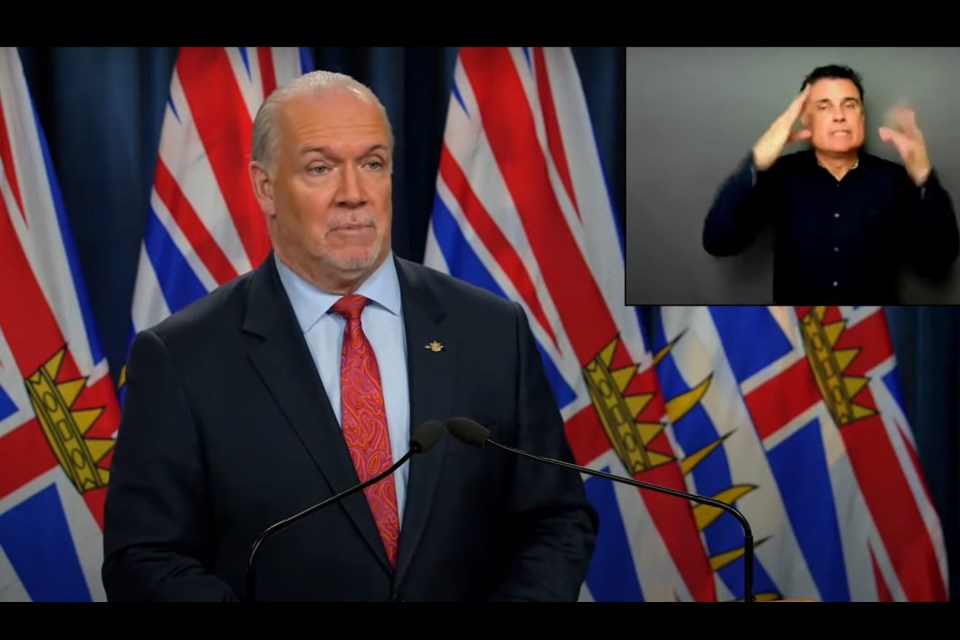B.C. Premier John Horgan said the province will increase enforcement of health orders in the next two weeks – the heart of the traditional holiday season - including pursuing and collecting more vigourously from those who are issued fines.
Horgan made the announcement Tuesday ahead of the first COVID-19 vaccines arriving in the province this afternoon. The vaccines, from Pfizer, will soon be accompanied by the Moderna version which will likely “go straight up North” to remote communities because of the latter’s more lenient temperature requirements.
Ottawa said earlier this morning that 168,000 Moderna vaccine doses are expected in Canada before the end of the year – and will show up within 48 hours of Health Canada’s approval. (The Moderna version of the vaccine is currently still in its final review stages in Canada.)
In the meantime, Horgan again urged people to stay close to home and not gather with others during the holidays as recent B.C. COVID numbers for new daily cases hover in the 500-900 range for the last weeks. A key part of that, Horgan added, is “holding rule-breakers accountable.”
“Certainly, everyone has a right to appeal, and everyone has the right to due process,” he said. “But once that due process has been finalized, if you do not pay the fines, we will send collections after you.
“This is serious,” Horgan added, noting this period will be the key for bending the COVID-19 curve before vaccines become widespread. “This is not a lark. This is not something we do lightly. Those who do not want to obey the rules the rest of us are following will have to pay the consequences.”
Horgan brought up the situation in Alberta as a comparison of what could happen in B.C. Alberta, he said, has seen 7,000 more cases of new COVID infections in the last week versus B.C. - and Alberta Premier Jason Kenney was forced to put the province into tight lockdown after daily cases approached 2,000, more than double the rate seen in B.C.
“I don’t mean to be disrespectful, but they are right next to us,” Horgan said. “And they are facing significant challenges.”
He added that he has spoken to Washington governor Jay Inslee last week, and the example there is the challenge of state governments not getting any federal aid - an issue that’s luckily not a reality in Canada.
Regardless, Horgan attributed the current COVID-19 spike to the virus re-entering long-term care homes, and the priority will now be to inoculate workers to shut down those transmission pipelines. That is where the first batch of Pfizer vaccines will go to, although Horgan declined to comment on how the vaccine distribution will go in terms of who gets priority as more doses come in later this year and into early 2021.
The focus right now, he said, has to be on people acting responsibly on the advice of Provincial Health Officer Bonnie Henry to suppress transmission rates.
“If we continue to follow that path and [also] have the benefit of immunization, I think we will be in a good place come summer and a better place next fall,” Horgan said. “Again, I want to reiterate – and Dr. Henry and I are both pretty clear on this – the vaccine does not mean we throw our masks up in the air today and celebrate the end of COVID-19, because that is not the case.”
Meanwhile, the premier said he has not seen an increase to provincial suicide rates during the pandemic (that he has been briefed on), but did note an “unacceptable” spike in opioid deaths. Horgan added the plan has always been to fine ways for life and business to operate safely during the pandemic, and noted the province continues to address concerns coming out of sectors such as education (re-opening of schools despite multiple exposures), construction and health care.



